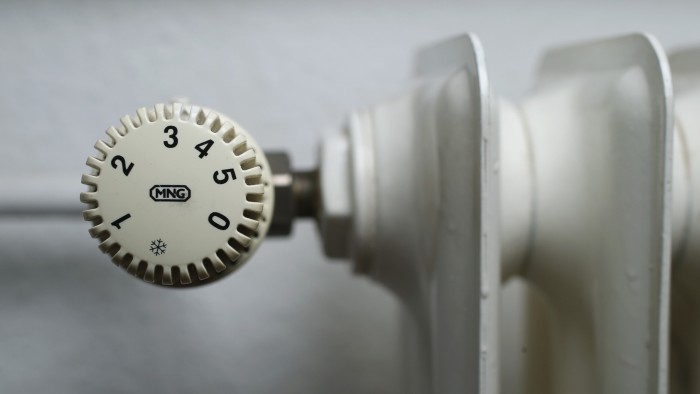Stay informed with free updates
Simply sign up to the EU economy myFT Digest — delivered directly to your inbox.
Brussels is considering using an upcoming carbon tax on petrol and home heating to fund the EU budget, risking further controversy over a levy that is unpopular with France and Poland.
The emissions levy on fuel for domestic boilers, small industrial plants and cars is due to come into force in 2027, a year before the bloc’s new multiannual budget is due to start.
European Commission officials have floated the idea of taking a portion of the funds raised from the new carbon tax to help plug holes in the EU’s overall budget, said three people with knowledge of the talks.
But the idea is facing heavy opposition from factions within the commission as well as member states, which fear it would fuel resentment against the EU and play into the hands of climate-sceptical rightwing politicians.
“It is completely toxic,” said one senior EU official.
The carbon tax, which was first proposed in 2021 at the height of pro-green sentiment in Brussels, is intended to work as a cap-and-trade system of permits similar to the EU’s current emissions trading scheme for power producers and heavy industry. Fuel suppliers would buy permits and then pass on the costs to consumers.
The measure could raise as much as €705bn in revenue between 2027 and 2035 given that high demand is forecast to push carbon prices up to as much as €149 a tonne in 2030, according to BloombergNEF. That could increase domestic heating bills by as much as 41 per cent, it warned.
The EU has sought to soften the blow by simultaneously introducing an €86.7bn social climate fund, which will use some revenues from the emissions levy to pay for better insulation in houses, decarbonising heating systems and improving low emissions transport.
But several member states have called for the levy to be delayed or reviewed fearing it will push up heating and fuel bills, prompting a reprise of the gilets jaunes protests that paralysed France in 2018. Taking a portion of the revenues for the EU’s own budget would only inflame opposition, said one EU official.
Poland’s Prime Minister Donald Tusk has called for the emissions trading system on cars and houses to be delayed, while several EU member states, including France and Slovakia, have not transposed the directive into their own national law.
Kurt Vandenberghe, director-general of the commission’s climate directorate, said at an event on Wednesday that Brussels was “very attentive to the fears and anxieties” about the measure. The commission “does not want high prices”, he added.
The commission, however, is in a bind as it seeks to find ways to deal with a €30bn annual shortfall in its budget needs over the seven years from 2028 because of repayments on the EU’s pandemic-era debt, as well as increased spending on new priorities including defence.
Governments that receive less money from the EU budget than they already put in, such as Germany and the Netherlands, are also reluctant to increase their contributions.
Revenues from climate-related policies such as the ETS and a tax on carbon-heavy imports both feature on a list of 16 options for so-called new own resources — or EU-level taxes — being considered by the commission, one official said.
The list also includes a potential levy on digital services, which could inflame tensions with the US, a levy on small packages entering the EU from third countries and a fee on visa-exempt travellers.
Raising taxes on tobacco or the sugar and salt content of processed foods has also been looked at ahead of the publication of the commission’s proposal for the budget in July. However, such levies are considered regressive and potentially unpopular, officials said.
There is “no ideal candidate but the least bad will be chosen”, said one EU official.
A commission spokesperson said: “The commission is looking into adapting and complementing the current package of new own resources on the table.”
